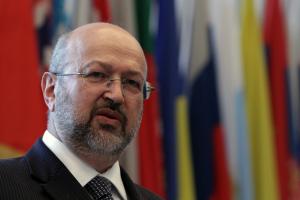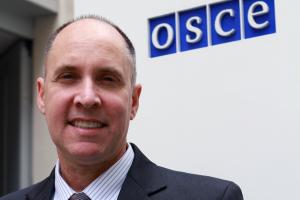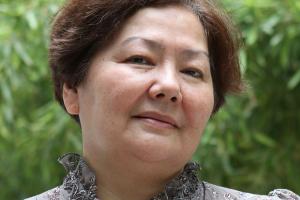Human Rights Day – United in Co-operation
On 10 December, the world celebrates Human Rights Day, proclaimed by the UN in 1950. Promotion and protection of human rights is a priority of the OSCE, and here are some of the ways we are making a difference.
Helsinki Final Act – A Milestone in Human Rights Protection
“Human rights lie at the core of what the OSCE represents”, says Lamberto Zannier, OSCE Secretary General. “We have to ensure that citizens throughout the OSCE region are both safe and free. We have to make a difference on the ground – where people need us and that is what will do”.Almost 40 years ago, the 1975 Helsinki Final Act – the OSCE’s founding document – recognized the close link between peace and security and the promotion of fundamental rights, economic and social progress and well-being for all peoples. This has been reiterated many times since, including in the 2010 Astana Declaration, in which OSCE participating States, “convinced that the inherent dignity of the individual is at the core of comprehensive security,” reiterated that “human rights and fundamental freedoms are inalienable, and that their protection and promotion is our first responsibility.”
“My mission is to work to prevent conflicts across the OSCE region”, says Zannier. “The 57 OSCE participating States must honour their obligation to respect human rights and fundamental freedoms – the respect essential for the peace, justice and well-being of all. Can we do it? Yes, we can and we must.”
Human Rights and Security
“That is why ODIHR, as the main human rights institution in the OSCE, works tirelessly to help countries in the region to safeguard human rights and ensure they are respected all year round.”
Minority Rights
No one can be discriminated against on grounds of sex, race, language, national or ethnic origin, or other status. More than 100 languages are spoken in the OSCE region. However, we all share the similar emotions and beliefs, and we all strive for peace, security and safety. Better lives, free from discrimination, intolerance, nationalism, hate speech.
“Globally, half of humanity belongs to one minority group or another. It sounds big - because it is big,” says Indira Bajramovic, President of the Roma Board, Council of Ministers of Bosnia and Herzegovina. “An opportunity to work on minority rights is the actual enjoyment of human rights. It is the enjoyment of human rights that everybody must experience and that is the mission I have before me.”
Freedom of Media, Freedom of Speech
“Free and independent media plays a vital role in protecting, ensuring and advancing human rights”, OSCE Representative on Freedom of the Media Dunja Mijatovic says.
“All human rights are interdependent and interrelated, the improvement of one facilitates the advancement of others. I think the same way with regard to free media and security. There is no security without free media and free speech, and there likely will be no free media or free speech without security.”
Counter-terrorism
“Terrorism cannot and should not be associated with any religion, nationality or people”, says Thomas Wuchte, OSCE Head on Anti-Terrorism Issues. “More focus needs to be put on prevention and engaging with civil society, youth, and women to counter violent extremism and radicalization that lead to terrorism.”
Terrorism continues to inflict pain and suffering on people across the OSCE area. Promoting and protecting human rights is essential to effectively prevent and combat terrorism.
The growing phenomenon of individuals travelling abroad to join or support terrorist groups underlines the need for greater international co-operation and for States to uphold human rights and the rule of law.
A specific session of the OSCE Ministerial Council’s meeting in Basel from 4 to 5 December 2014 was devoted to discussing counter-terrorism. The Ministerial Council adopted a Declaration on The OSCE Role in Addressing the Phenomenon of Foreign Terrorist Fighters in the Context of the Implementation of UN Security Council Resolutions 2170 (2014) and 2178 (2014).
Fight Human Trafficking
Human trafficking is a gross violation of human rights, fundamental freedoms and human dignity, and is a form of violence against children, men and women.
According to ILO estimates, 20.9 million people are victims of forced labour and human trafficking globally. Of the total, 22 per cent are victims of forced sexual exploitation and 68 per cent are victims of forced labour exploitation in sectors such as agriculture, construction, domestic work or manufacturing.
“The OSCE has always led with a human rights approach to anti-trafficking,” says OSCE Special Representative and Co-ordinator for Combating Trafficking in Human Beings, Ambassador Madina Jarbussynova. “Not only must we ensure the protection of the rights of trafficked persons, but if each of us, as individuals and collectively, does our part to protect the rights of all, be it the right to an education, or to decent work, human trafficking can also be prevented.”






